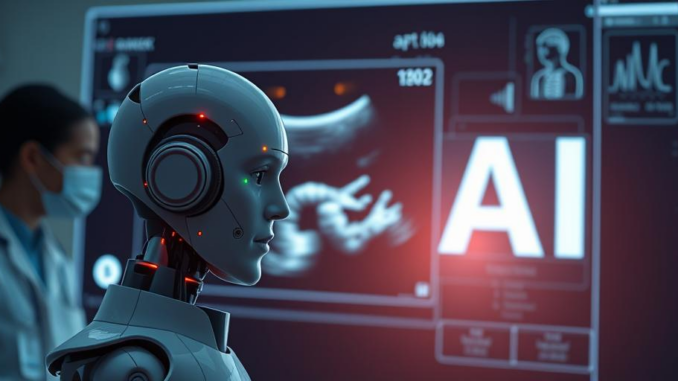
Summary
Philips’ new AI-powered Elevate software for EPIQ Elite and Affiniti ultrasound platforms speeds up exams, improves diagnostic processes, and increases clinical confidence. It offers over 100 image presets, AI-driven automation, and remote collaboration tools. This innovation addresses healthcare’s growing need for faster workflows and greater efficiency.
Healthcare data growth can be overwhelming scale effortlessly with TrueNAS by Esdebe.
** Main Story**
Philips is shaking things up with their new Elevate software, and it’s a pretty big deal for ultrasound workflows. Think AI is just buzz? Elevate, designed for their EPIQ Elite and Affiniti platforms, is proving it can really streamline things. In today’s fast-paced healthcare world, everyone’s looking for ways to get faster, more accurate results. And Elevate seems to be answering that call, promising to speed up exams and give clinicians a real confidence boost.
Enhanced Workflows and Efficiency
Elevate isn’t just one fancy feature; it’s a whole suite of them, carefully designed to make ultrasound exams smoother from start to finish. Patient setup, image capture, even those tricky quantitative measurements – Elevate’s using AI to optimize everything. A standout? Over 100 new image quality presets tailored for different body parts, like abdomen, vascular, even little ones in pediatrics. Plus, they’re tissue-specific and work across a range of transducers. Which, let’s be honest, means clearer images and less fiddling around with settings. Philips is really pushing the ‘clinical confidence’ angle here, and rightly so; clear images are everything.
And it doesn’t stop there. Elevate also offers remote software upgrades, proactive monitoring, and expanded virtual access via Collaboration Live. Imagine diagnosing patients remotely, getting a second opinion from a colleague across the country, or even troubleshooting system issues from your laptop at home. It’s all about boosting collaboration and efficiency, which is what we all want, isn’t it?
AI-Powered Automation for Faster Exams
Now, let’s talk about the AI magic. One of Elevate’s coolest features is AutoStrain. It automatically picks the three best images for quantifying left ventricular function. So, for spotting cardiac issues, you get consistent heart rate and image depth without having to spend ages doing it manually. Saves clinicians a ton of time and, importantly, reduces the risk of human error. The Affiniti system’s even got a first-of-its-kind AI-enabled automated segmental wall motion scoring tool. Pretty cool, right?
This helps in picking up subtle changes in heart function that can be easily missed otherwise. It also cuts down on the variability you often see when different people are doing the scoring. Again, more confidence in the diagnosis. Beyond the heart, Elevate’s automation extends to other areas too. The software automatically optimizes image brightness and uniformity. Less button pushing? Yes please! During abdominal exams, for instance, the time it takes to get a good image can be slashed by up to half. Imagine what you could do with all that extra time!
Addressing Healthcare Challenges
So, why did Philips develop Elevate? Well, they saw the writing on the wall. Healthcare systems are facing some serious challenges: rising demand for ultrasounds, staff shortages, and the need to do more with less. I remember talking to a sonographer friend of mine who was saying they are being increasingly pressured to do more scans in a day, without any extra support. Bita Alu, Business Leader at Philips Ultrasound, nailed it when she talked about how Elevate is designed to tackle these problems head-on. By making ultrasound exams faster and more efficient, Elevate can help healthcare providers handle those higher patient volumes and ease the strain of staff shortages.
The AI isn’t just about speed; it’s also about making sure diagnoses are accurate and consistent. Which means more confident decisions and, ultimately, better patient care. As a result, it addresses the real-world challenges that healthcare providers face every day. If you ask me, this AI-powered software is a pretty big step forward for ultrasound technology. Its paving the way for more effective diagnostic imaging, not just now but in the future.


AI optimizing ultrasound images in half the time? Does this mean we’ll soon have AI arguing with itself about the perfect shade of grey for a kidney? I, for one, welcome our new grayscale overlords.
That’s a hilarious take! I think you’re right, maybe we’ll see AI debating grayscale soon! It’s amazing how AI can now automate and enhance image quality, especially in tricky areas like pediatric or vascular ultrasounds. It will be interesting to see how AI will continue to improve diagnostics.
Editor: MedTechNews.Uk
Thank you to our Sponsor Esdebe
The AI-driven automation for cardiac function assessment sounds promising. Could this technology be adapted to analyze other dynamic organ systems, such as the lungs or bowels, potentially improving diagnostic accuracy and speed in those areas as well?